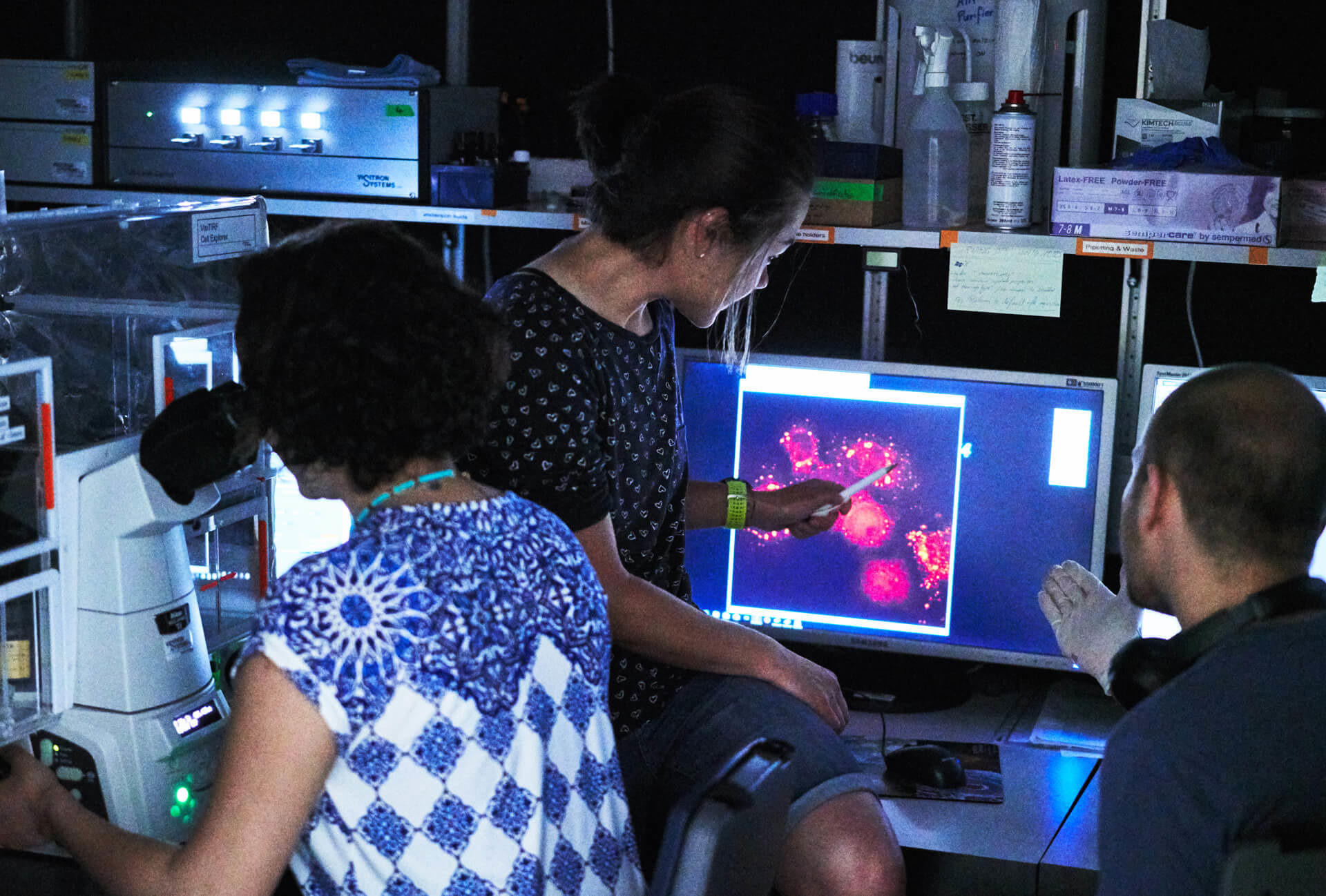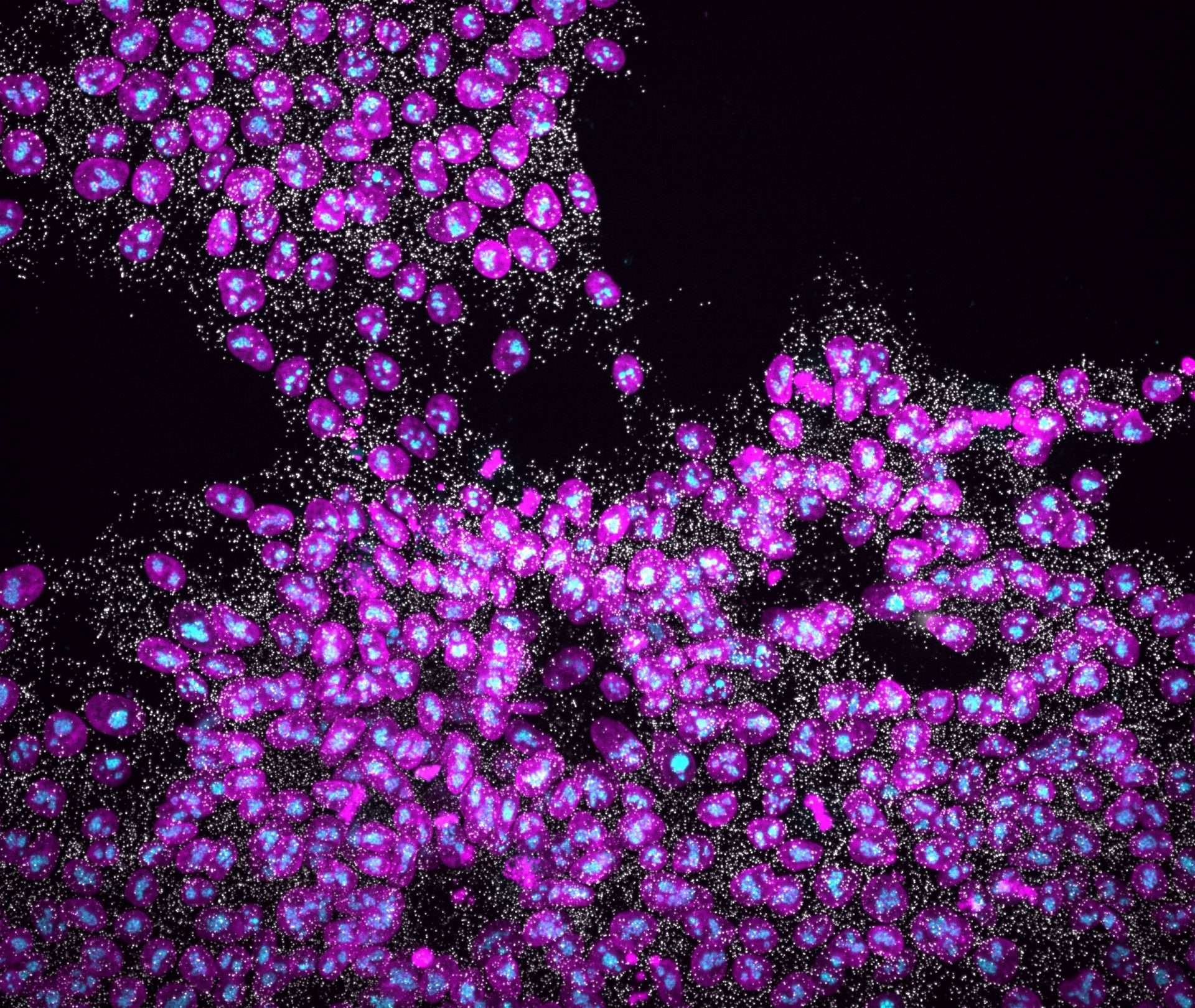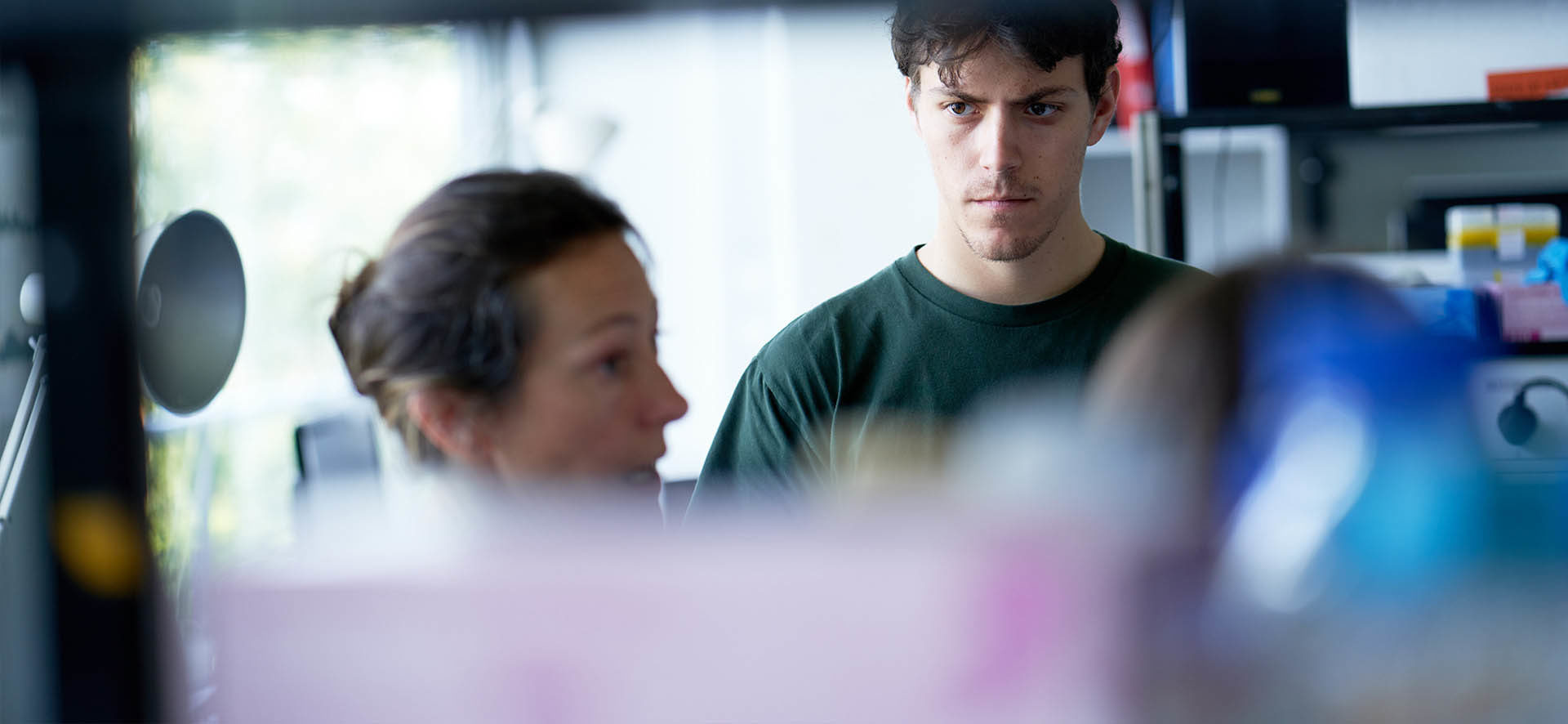Quantitative and Molecular Systems Biology
An introduction to modern state-of-the-art technologies in quantitative and molecular systems biology, including various large- scale –omics approaches and gene perturbation screens, network biology, synthetic biology, single-cell methods, computational approaches and mathematical modeling.
Systems Dynamics in Cell and Developmental Biology
This block course covers new methods in cell biology using quantitative imaging and computational image analysis. Of central importance is the theme of variability between individual cells and subcellular objects. Variability will be addressed as a biological phenomenon, and as a means to statistical analysis of causality in molecular and cellular systems.
Master Thesis in Molecular and Cellular Biology
The Master thesis course is a 52-week scientific research project in which a larger problem is to be worked on independently. The Master thesis is documented by a comprehensive report (Master's Thesis). The course is supervised by Prof. Lucas Pelkmans, and usually also by an advanced PhD student, postdoctoral fellow, or scientific staff member for day-to-day supervision in the lab. More information for carrying out the master's thesis is published on the website of Molecular and Cell Biology.
Integrated knowledge of biology
This module, designed as a self-study period of the Master degree course and comprising of a total of 300 study hours, allows students to demonstrate a comprehensive understanding of specialised areas of the Biology curriculum, especially - but not only - in the area of their chosen Master. When taken in the Pelkmans lab, these are in the areas of quantitative cell biology and systems biology. The supervisor of the Master thesis in collaboration with the Master coordinator discusses and designs the scope and content of the module with each individual student. At the end of the self-study period, the examination of the learning outcomes takes the form of a three-hour written and a 30-minute oral examination within the same week.

 FBL-mEGFP (cyan), DAPI (magenta), bDNA smFISH (against mEGFP, white) in CRISPR-based endogenously tagged human induced pluripotent stem cells. Image taken by Doris Popovic (2017).
FBL-mEGFP (cyan), DAPI (magenta), bDNA smFISH (against mEGFP, white) in CRISPR-based endogenously tagged human induced pluripotent stem cells. Image taken by Doris Popovic (2017).
«To teach is to learn twice over - Joseph Joubert»